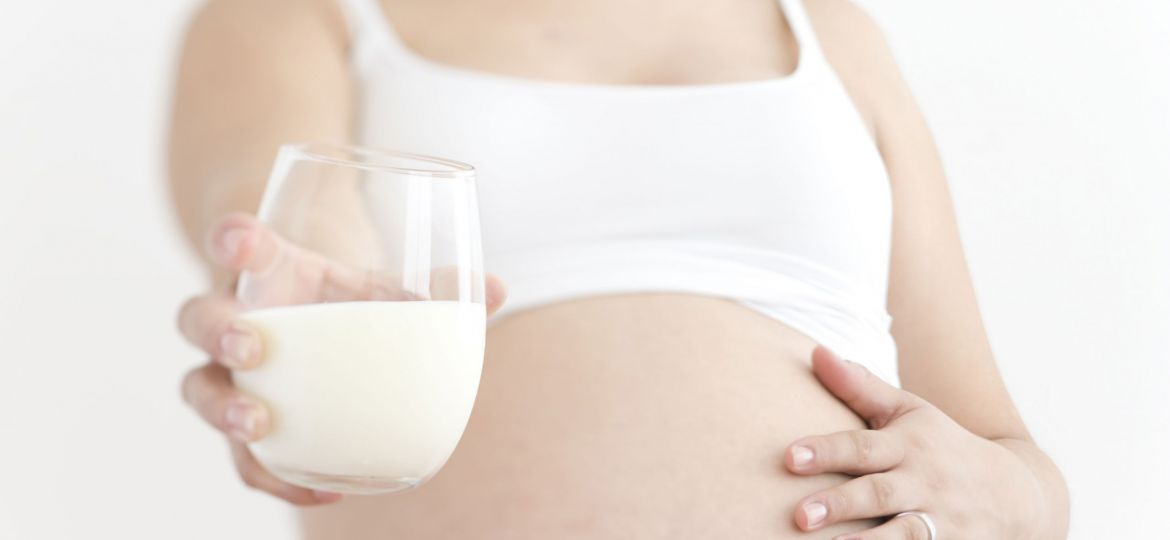
Pregnancy causes the body to undergo a series of profound changes. As the endocrine system starts churning out gestation-sustaining hormones, the body’s immune system and metabolic processes are altered.
One system, whose importance on maternal and fetal health is only just gaining recognition, is the resident microbiome. In fact, there are several, including those found in the digestive tract, the vagina and in breast milk.
We are barely on the cusp of uncovering the myriad of complex microbe-host interactions that are destined to rise to innovative therapeutic approaches which will revolutionize pre- and post-natal care.
For instance, could morning sickness be ameliorated by modulating the composition of the microbiome? Or could the recently discovered link between the makeup of the vaginal microbiome and miscarriage significantly lessen the anguish suffered by expectant parents?
Morning sickness – the next platform for good bacteria
Around three quarters of pregnant women suffer from morning sickness. It boggles the mind that medical science has so far failed to come up with an answer as to why the first 12 weeks of pregnancy cause women so much discomfort. A small percentage is so severely affected that normal life is not only made impossible, but the health of mother and baby may be put at risk.
A recent study carried out by the University of California – Davis Health found that by taking a probiotic supplement, early pregnancy malaise like nausea and vomiting could be alleviated. Thirty two study subjects took an over-the-counter preparation containing mainly Lactobacillus strains for sixteen days, diminishing the hours the participants felt nauseous by 16%, and the number of times they vomited by one third. They also reported significant improvements on several parameters indicative of their quality of life, including better appetite, reduced fatigue and less disruption to social activities.
Furthermore, the study managed to identify certain biomarkers, which could shed light on probiotics’ likely mechanisms of action, and eventually help to reveal the underlying causes of morning sickness.
For example, by analyzing the stool samples provided by the participants, the researchers discovered a possible correlation between increased vomiting and low levels of a bacteria carrying a bile-acid-synthesizing enzyme. High levels of specific gut microbes of the Akkermansia genus were also identified as a possible culprit in provoking vomiting. The administration of probiotics significantly lowered their presence in the gut.
Although the trial was of short duration and involved only a small group of subjects, the results are nevertheless encouraging. And since the majority of pregnant women experiences morning sickness, this translates into a sizeable audience for targeted dietary supplements.
Miscarriage linked to microfloral diversity
Morning sickness may be debilitating, but it barely compares with the heart-wrenching tragedy of miscarriage. Around one third of pregnancies end this way, many before the woman ever realizes that she was even pregnant. Chromosomal abnormalities are believed to be responsible for half of these cases. The vaginal microbiota may be implicated in at least part of the other 50%, and research into this area has revealed some fascinating insights.
Probably the most important of these concerns microbiota composition: While a diverse microflora consisting of a multitude of different species is generally considered the hallmark of a healthy gut, when it comes to vaginal health, the opposite applies. A healthy vagina is dominated almost entirely by various strains of Lactobacillus.
A vagina depleted in Lactobacilli during the early phases of pregnancy presents a risk factor for first trimester miscarriage. These healthy bacteria keep out other, more nefarious species, which trigger the immune system into launching an inflammatory response. When the infection and accompanying inflammation spread upwards, it can break down the womb lining, resulting in pregnancy loss, concludes a study published early this year in BMC Medicine.
How might this be prevented? A glimmer of hope comes in the shape of a rapid testing device developed by researchers from the March of Dimes Prematurity Research Center at Imperial College, London. The implement determines vaginal microbiome composition as well as inflammatory status in a matter of minutes. The test, which currently awaits regulatory approval, is destined for the hands of obstetrics and gynecology practitioners.
However, it is feasible that home test kits of this kind will become increasingly common. In fact, there are already commercially available services, like Juno Bio Vaginal Microbiome Test. A kit is posted to consumers and then returned to the company with a vaginal swab sample and corresponding pH reading. The results can be accessed via an app and subsequently discussed with one of the company’s “Vaginal Coaches.”
As to shifting the balance of the vaginal microbiome away from potentially harmful microbes and in favor of Lactobacilli, there are products on the market geared towards achieving this. One example is Vagisan Lactic Acid Bacteria, by August Wolff GmbH, on sale in German pharmacies. The vaginal suppositories contain and Lactobacillus rhamnosus and L. gasseri.
Probiotics to team up with folic acid?
Alleviating morning sickness and preventing miscarriage are by far not the only potential benefits of probiotics during pregnancy. There are findings indicating that pre- and post-natal supplementation with Lactobacilli and bifidobacterium spp. may reduce the risk of gestational diabetes, curb anxiety, as well as decreasing eczema and other allergic reactions in breast-fed infants. In effect, a mother’s chosen probiotic is also the first children’s probiotic by proxy.
Are probiotics safe to take during pregnancy? The answer, so far, appears to be a resounding “yes.” The topic has been researched many times over the past decades, and one of the latest papers, a systematic review and meta analysis published in the journal Nutrients, turned up no notable health concerns connected to the administration of pre- and probiotics during pregnancy and lactation.
The future for probiotics in this area is bright, especially when considering that dietary supplements being recommended by authoritative sources during this crucial life stage has solid and enduring precedents. Public health bodies, like the CDC in the US and the NHS in the UK, for instance, urge women to take folic acid during the very early phases of pregnancy in order to prevent spina bifida, a serious birth defect.
Fresh insights into the workings of the maternal microbiome and its impacts on the health of both mother and her developing infant are coming to light month by month, rendering it more than just conceivable that microbiome monitoring and modulation will eventually form a vital part of pre- and post-natal care.
View all our reports
See the range of reports we offer for the probiotics market including market overviews, deeper examinations of niche markets, country insights and more.


